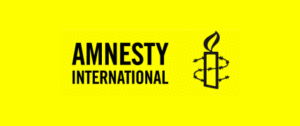 by Amnesty International, London, August 9, 2019
by Amnesty International, London, August 9, 2019
AI Justice for Trinco 5 ASA3708622019ENGLISH
Amnesty International welcomes the decision of the Attorney General of Sri Lanka to recommence
investigations into the killing of five Tamil students – known as the ‘Trinco 5’ – allegedly by the Sri Lankan
security forces in Trincomalee on 2 January 2006. However, reforms are required if the investigations are to
be effective.
The decision follows the acquittal of 13 Special Task Force (STF) suspects earlier this month, reportedly due
to a “lack of evidence”.
Amnesty International notes the importance of a thorough, effective and impartial investigation into the
killing to ensure that victims of human rights violations and abuses can access justice. The government of
Sri Lanka has an obligation under international law to deliver justice to the victims of the killings – either
through the domestic court system, or through a judicial mechanism with a special counsel to investigate
allegations of violations of international human rights law and international humanitarian law, which the
government proposed to establish in UN Human Rights Council resolution 30/1 (2015).
Amnesty International also urges the government of Sri Lanka to strengthen witness protection and mutual
legal assistance from countries where witnesses and victims may now reside, in order to effectively investigate
the killings and pursue accountability for the ‘Trinco 5’.
A journalist who took photographs of the bodies, Subramaniyam Sugirdharajan, was killed a few weeks later.
Dr. K Manoharan, whose son Ragihar was one of the victims was forced to flee the country after receiving
death threats and continues to voice fears of reprisals against those who give evidence in the case. The
families of the other victims, including two youths who survived the attack were also forced to flee Sri Lanka.
In particular, in light of the legitimate security concerns of witnesses and victims to the case, the government
of Sri Lanka should amend the Assistance to and Protection of Victims of Crime and Witnesses Act of 2015
to further facilitate the participation of witnesses and victims outside of Sri Lanka. Such reform should seek
to amend the law beyond the facilitation of recording evidence or statements remotely from a Sri Lankan
diplomatic mission in the country from where a victim of crime or witness seeks to testify or make the
statement.
BACKGROUND
On January 2, 2006, Ragihar Manoharan and four other Sri Lankan Tamil students, known as the “Trinco
Five” students, were killed by security forces in the city of Trincomalee, in north-eastern Sri Lanka. The
Government of Sri Lanka claimed that the youth were killed in a grenade attack, but medical reports showed
that the youth were shot at close range.
A criminal case was filed against 13 STF members suspected of executing the five youth at Trincomalee
beach on 2 January 2006. On 3 July 2019, the suspects were acquitted reportedly due to a “lack of
evidence”. On 9 July 2019, the Attorney General directed police to recommence investigations into the
killing. According to media reports, the AG directed the police to carry out a comprehensive investigation to
trace the whereabouts of the witnesses and send him a detailed report of the progress into the matter.